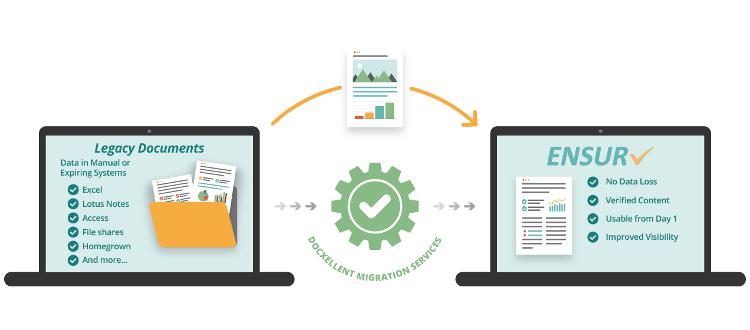.jpg?width=2531&height=1406&name=Industries%20Improved%20by%20a%20QMS%20%20(1).jpg)
For companies of all industries, keeping the quality of your product and processes high is essential. This means that robust quality assurance is crucial in today’s business world if you want to stay competitive — not only to attract customers but also because it’s generally required for regulatory purposes. This is where a Quality Management System (QMS) comes in. In this article, we’ll be breaking down the basics of the QMS: what these systems consist of, what benefits they bring, and which companies can benefit from adopting them. Read on to learn more.
What is a QMS?
A Quality Management System (QMS) is defined as a collection of business functions that work to continuously improve your company’s quality, guarantee customer expectations are met, and ensure compliance. These systems are designed to help companies track and better their quality process all while increasing their efficiency.
What are the Benefits of a QMS?
Implementing a quality management system can help your company in many ways. Generally, the purpose of these systems is to offer companies a seamless link between processes, documents, and policies that work in tandem with an automated quality workflow. These capabilities help your company work towards improved business processes and work instructions, making it possible for your employees to speed up their day-to-day activities without compromising on quality.
What Industries Can Be Improved by a QMS?
Quality management systems offer benefits for nearly every industry, from manufacturing to the government sector. Let’s dive into a few of the industries that can gain the most from implementing one of these systems.
Manufacturing
Creating a strong quality management process is essential for manufacturing companies. Not only can it help you avoid regulatory fines, but it can also ensure you’re meeting customer expectations and drawing repeat business. Additionally, manufacturing quality control software helps you make the most of the materials you have and avoid unnecessarily wasting them whenever possible. Obtaining more parts, pieces, and/or raw materials from your suppliers means spending more money, which in turn equates to lower profits.
Life Sciences
For the life science industry, using a QMS helps companies deliver quality products in a timely manner all while complying with any applicable regulatory standards. Your company can use these systems to improve your operational efficiency, maintain compliance, and achieve your overarching quality goals.
Packaging
Without a QMS, packaging companies are often subject to errors and rework for employees, inconsistent processes across different departments, and costly delays in production. With the benefits of a quality management system, these companies can focus on streamlining their processes, effectively managing their supplier relationships, and managing the documents that run their production line, including Bill of Materials (BOMs), logs, and revisions.
Food & Beverage
A QMS enables food and beverage companies to digitally manage all documents that touch every aspect of their supply chain. By implementing a QMS, your company can gain powerful control over your data and documentation, helping you to automate quality, maintain compliance, streamline your supply chain, and increase customer satisfaction.
Cannabis
The alternative medicine and recreational cannabis industries are growing exponentially, and so are the requirements for complying with regulations from various governing bodies. Quality management systems help cannabis companies keep up with regulations, verify their documentation complies with the ever-changing requirements, and increase efficiency.
Government
Many government, state, and local agencies struggle with inefficient processes for managing policies, procedures, and other critical documents. Implementing a QMS eliminates inefficient creation, approval, and filing processes and cumbersome paperwork by providing a secure, browser-based platform for collaborating on, storing, and retrieving documents. Using one, centralized system for managing your policies, procedures, manuals, and training increases your overall productivity and makes it easy for employees to comply with records policies.
Laboratories
Quality management systems offer a centralized platform for laboratory, analytical, and testing companies to automate their document control and quality management tasks. Using the configurable power of a QMS, laboratory companies can automate many, if not all, of the functions of a quality program, improving efficiency and eliminating the chance of human error.
Effective quality management is a complex task that must remain organized to be effective. A Quality Management System (QMS) can streamline the process of organizing, accessing, and controlling your important quality documents. Whether you are selling a product or providing a service, these systems can help make your process more efficient and increase your bottom line.
Check out our other resources on this topic:
- The Ultimate Guide to Implementing Quality Management
- Best Practices from an Expert on the Quality Audit Process
- 6 Tips to Effectively Manage Your CAPA Workflow
- Why Quality Is the Most Essential Part of the Manufacturing Process
- The Four Main Components of a Quality Management System
To learn more about how our QMS software can benefit your quality control efforts, contact us now.
Tom Tassias is DocXellent's Chief Technology Officer. After joining our team in 2006, he became responsible for providing technical leadership and creating innovative, best-in-class products and document solutions for our customers. Before working at DocXellent, Tom held roles in Information Technology, software development, technical leadership, and project management. Learn more about Tom and the work he does for DocXellent here.






























